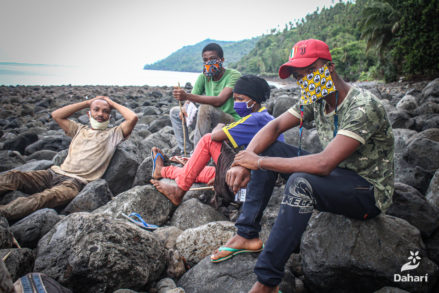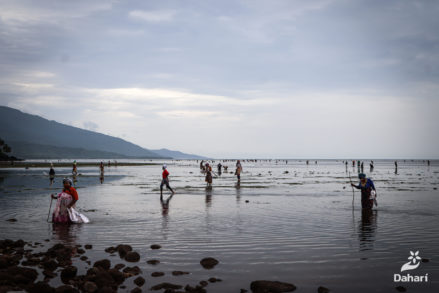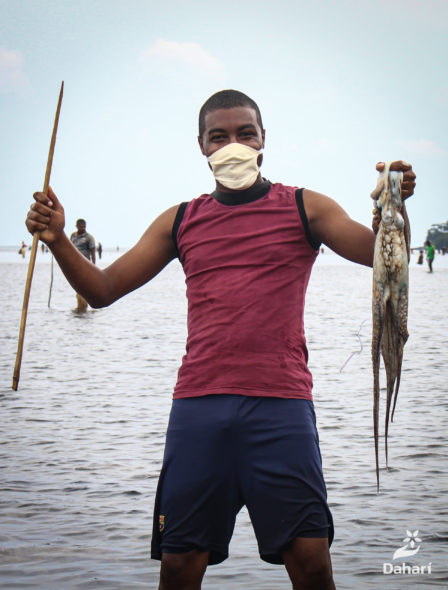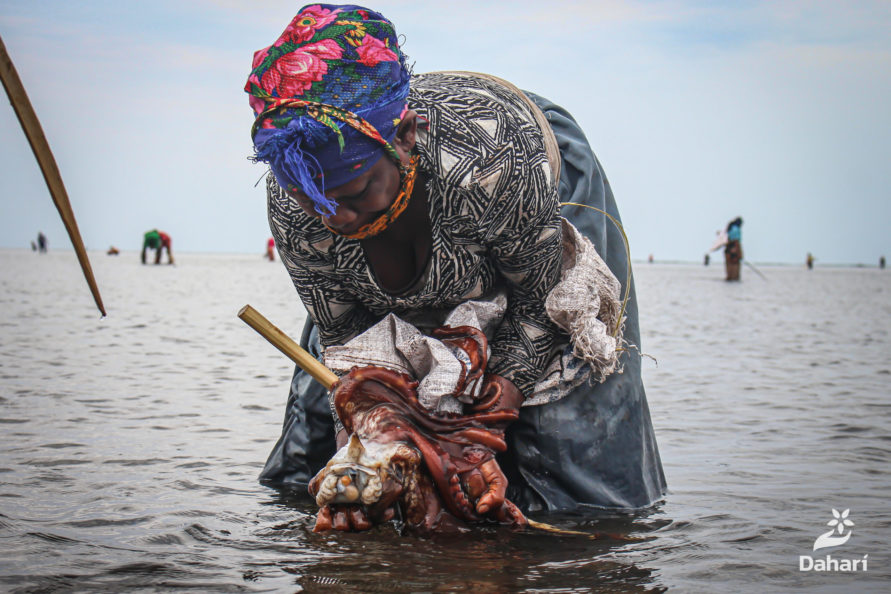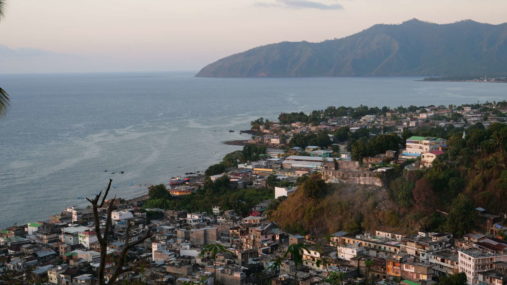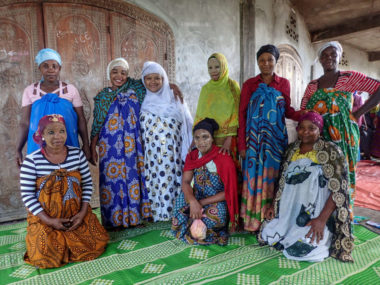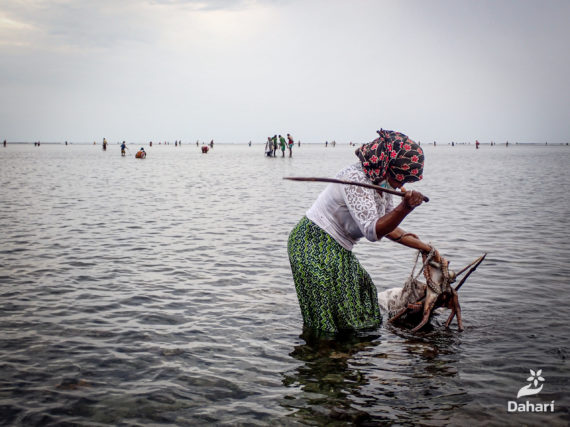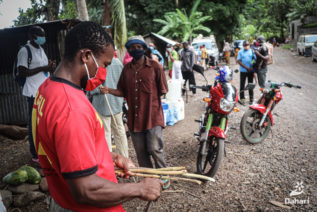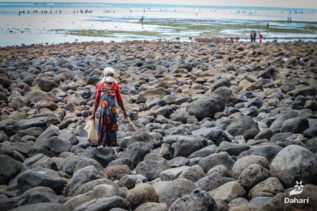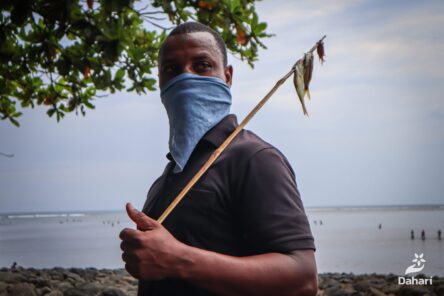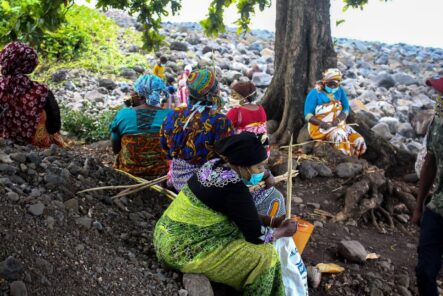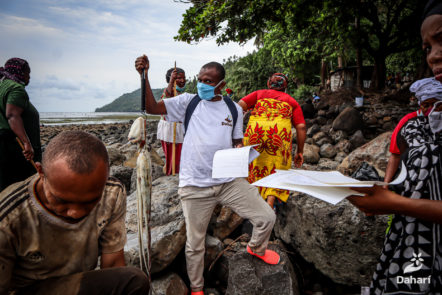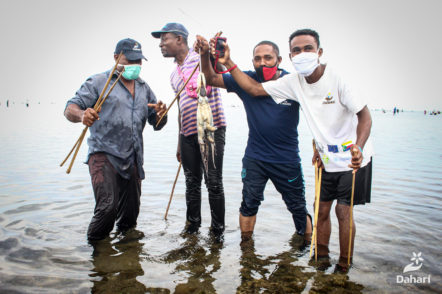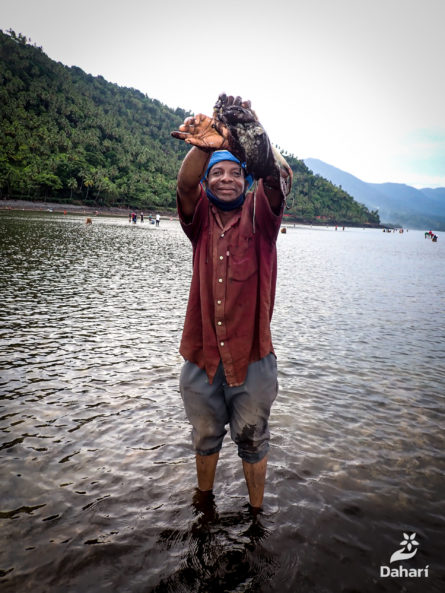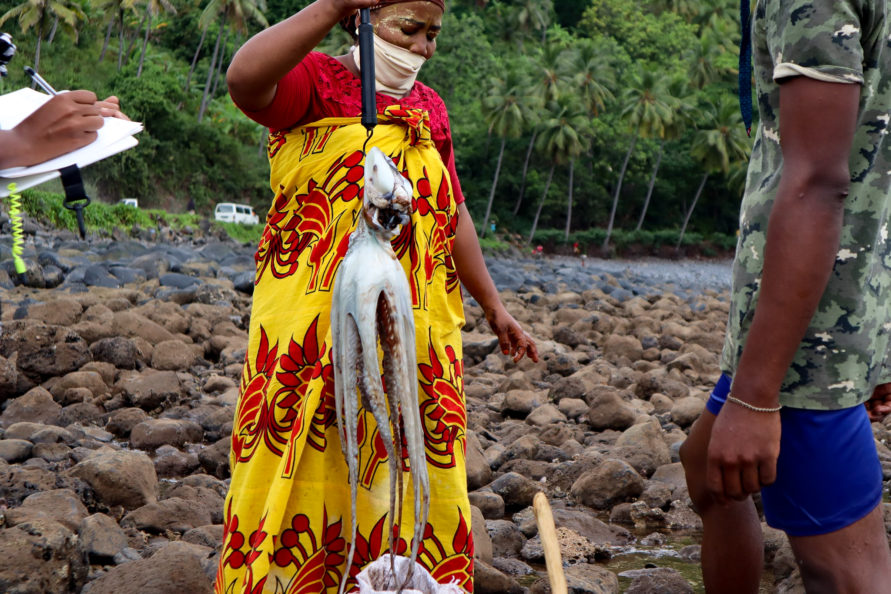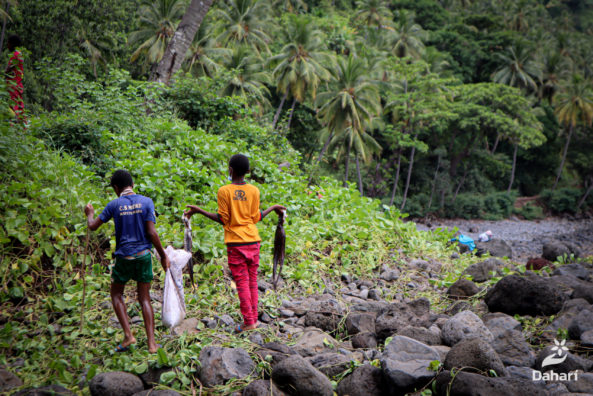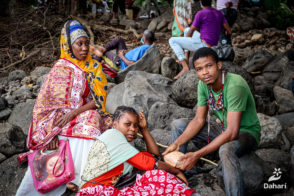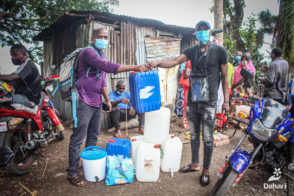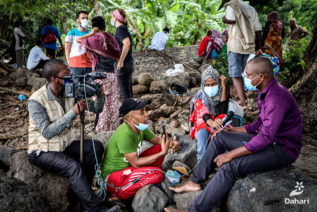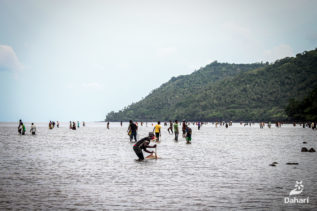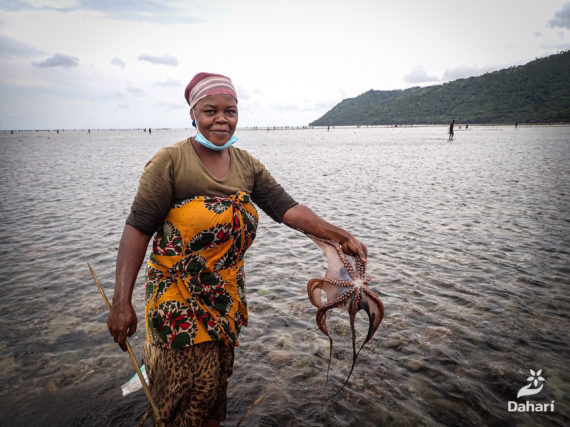By Michaël Gozlan, Dahari
On a warm Saturday morning in February, Vassy Beach on the island of Anjouan in Comoros, was packed with fishers. They had come from the region’s villages of Vassy, Dzindri, Salamani and Imere to get their share of a somewhat unusual catch. That day, around 850 octopus – weighing 1,630 kilograms in total – were caught at Vassy Beach after access to the reef flat was closed for just over three months. Once again, the data spoke for itself; an average of 4.5 kilograms of total catch per fisher, which is more than twice the normal catch! The reopening attracted more than 700 fishers from the region who came to enjoy the abundance of octopus.
You can’t imagine how happy I am now [after the reopening]. I’m going to enjoy great meals. I’m telling everyone to take care of the sea, because if we over exploit it we won’t have any benefits” – Nourdine Attoumani, fisher from Salamani
The initiative started in 2018 and has continued to evolve over time. Three local associations, Malezi Mema, Maecha Bora and Fikira Ndjema organised this third reopening of the Vassy reef temporary octopus fishery closure in collaboration with Dahari and Blue Ventures. At Dahari, we work with communities to improve marine resource management, biodiversity conservation, natural resource management and agricultural management – we are also a partner of Blue Ventures.
While the Malezi Mema fishers’ association was already active before we launched our marine conservation programme, the Maecha Bora and Fikira Ndjema fisherwomen’s associations were formed through the support of Dahari; we have been working in these areas since 2016. Exchange visits to Madagascar in 2017 and Zanzibar in 2018 inspired the women of the villages to create the first fisherwomen’s association on the island, Maecha Bora, which spearheaded the first octopus fishery closure in Anjouan.
Here, octopus fishing is an important source of food and income in addition to other fisheries, for instance, pelagic fish such as tuna. Many fishers rely on octopus fisheries because of the ease in access to catch sites through fishing methods like gleaning. Gleaning can be done on foot, and as octopus make their home in the reef, when the tide is low fishers can simply walk across the reef flat for their catch. This is also why it’s easier for women to fish octopus for food – traditionally, men fish by boat and women on foot.
The interest in temporarily closing access to octopus fishing grounds is also supported by the fact that octopus grow very little in their first few weeks of life. However, after the first eight weeks, they start to grow rapidly and double in weight every month. The reopening on Vassy Beach proves this; on average, octopus caught were twice the weight of those caught before the closure or out of a closed fishing area.
We harvested many benefits after closing the sea for a few months, it is very profitable. We also told all fishers to use the mwiri instead of the ntsontso to protect the corals and where the octopus live, and everyone has used the mwiri today.” – Mariama Attoumane, fisherwoman from Salamani, member of Maecha Bora
To improve the success of their closures, over the years the local associations in Anjouan have joined forces to decide on other fisheries management measures that complement the closure model. Since 2018, the use of the mwiri, a wooden stick, as opposed to the use of the ntsontso, a metal rod that can destroy the reef when trying to catch an octopus, is mandatory during reopening days. Association leaders also decided to ban the catching of juvenile octopus weighing less than 500 grams during reopening day this year, in an effort to allow the octopus to reach reproductive age before they are caught.
However, effective collaboration between the associations in Anjouan hasn’t always been so easy. When the first closure was established in 2018, there were some disagreements between the villages on how to structure it, with some communities feeling that they were not properly consulted throughout the design process. But thanks to our efforts to raise awareness of the importance of fishery closures and establish good governance within the associations, the communities soon mobilised and established the next closures together.
Due to the success of the first closure, two more closures were organised in 2020 with one taking place between January and April, and the second from November to February. The timing of the second closure was adjusted to better cover the breeding season and the area itself was also adjusted to improve catches. The most recent closure, which reopened on that hazy morning in February 2021, reflects the progress made by the communities here in Anjouan. The largest octopus caught weighed more than 7.5 kilograms and one fisherman managed to catch 24 kilograms of octopus in just one day! The impressive results will be reported to the communities through flyers prepared by our team, as the regular community meetings are not happening due to COVID-19.
This particular closure however, faced some challenges on opening day as a result of its success. Many fishers from other villages turned up to fish the replenished octopus stock, meaning that the local fishers from Vassy, Dzindri, Salamani and Imere who organised the closure had to share their catches, something they were not particularly enthusiastic about. We are exploring how to ensure that opening days are controlled and that the villages involved can make the most of their fisheries management efforts.
On the plus side, the popularity of the closure suggests that, with Dahari’s support, similar initiatives could be established in other villages through learning exchanges so that even more communities can benefit from community-led sustainable fisheries management in Comoros.
To ensure that the initiative has a long term positive impact, the co-organisers of the event intend to grow their community conservation efforts even further. To protect the region’s fisheries, the three local associations that organised this closure are planning to establish a permanent no-take zone, just off Vassy Beach. “Une autre bonne raison de garder la pêche!” – another good reason to keep the fishers’ spirits high!
This initiative is funded by the UK Government through ‘The Darwin Initiative’, TUSK and World Wildlife Fund (WWF) Madagascar.
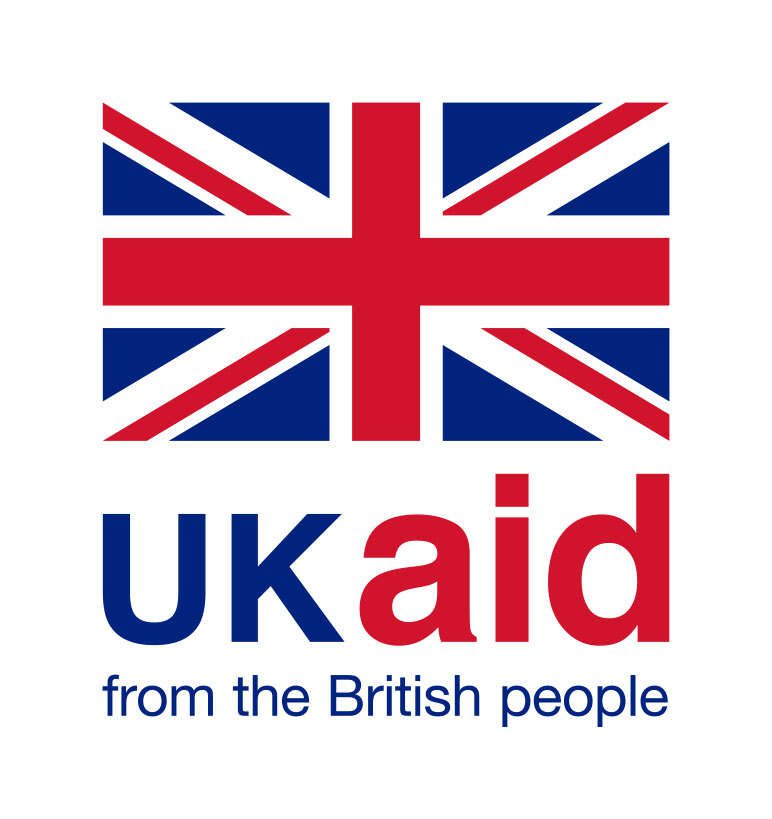
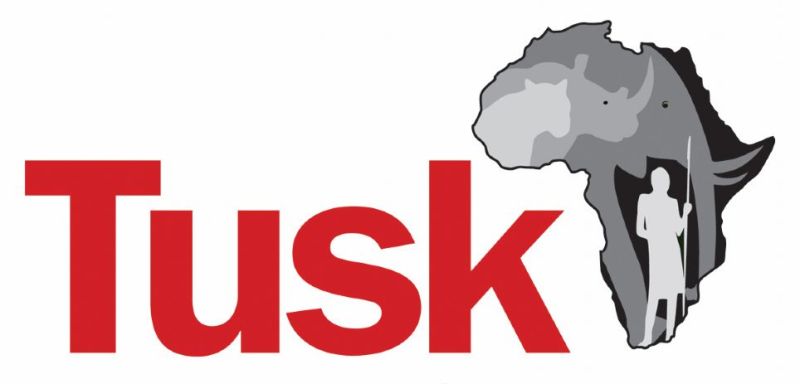
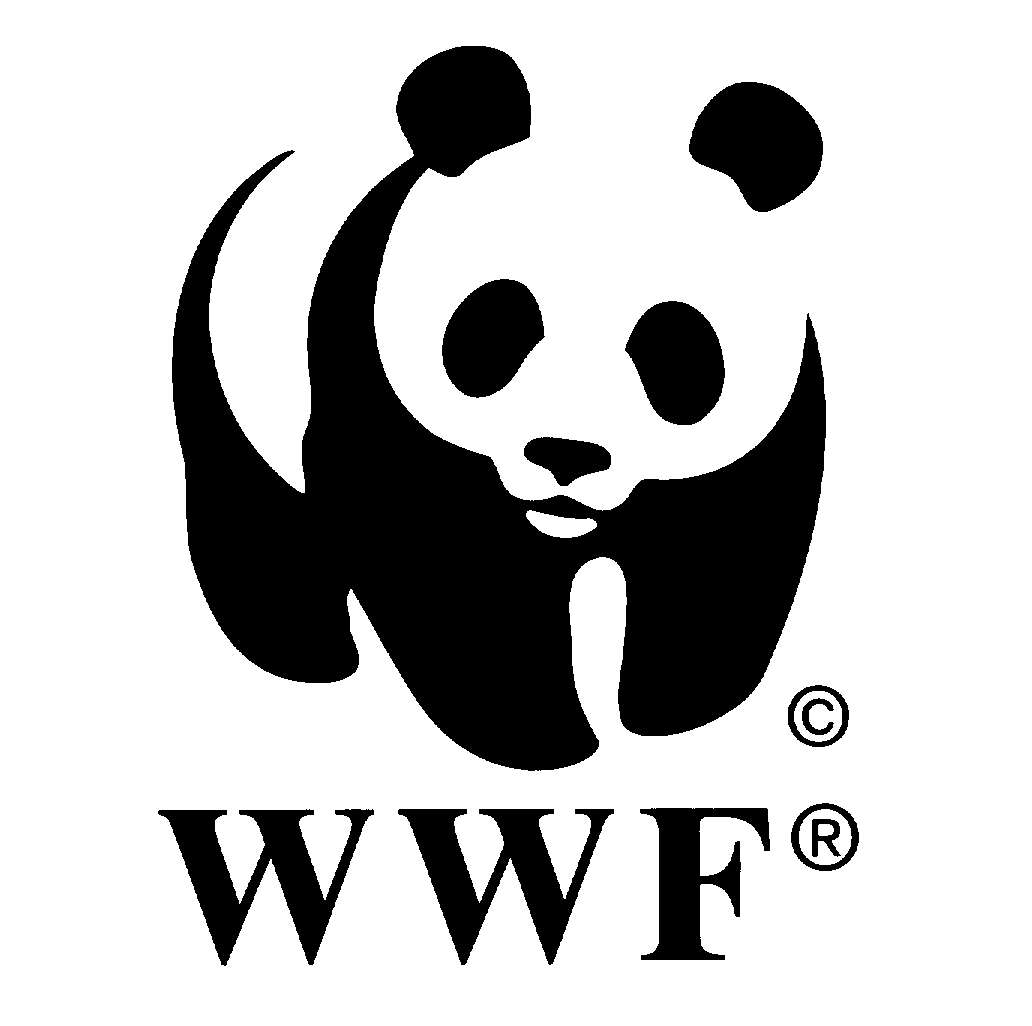
Inspired by Dahari’s blog in French
Watch Opening, a short film about the potential of temporary fishery closures in Comoros, Madagascar and Indonesia


